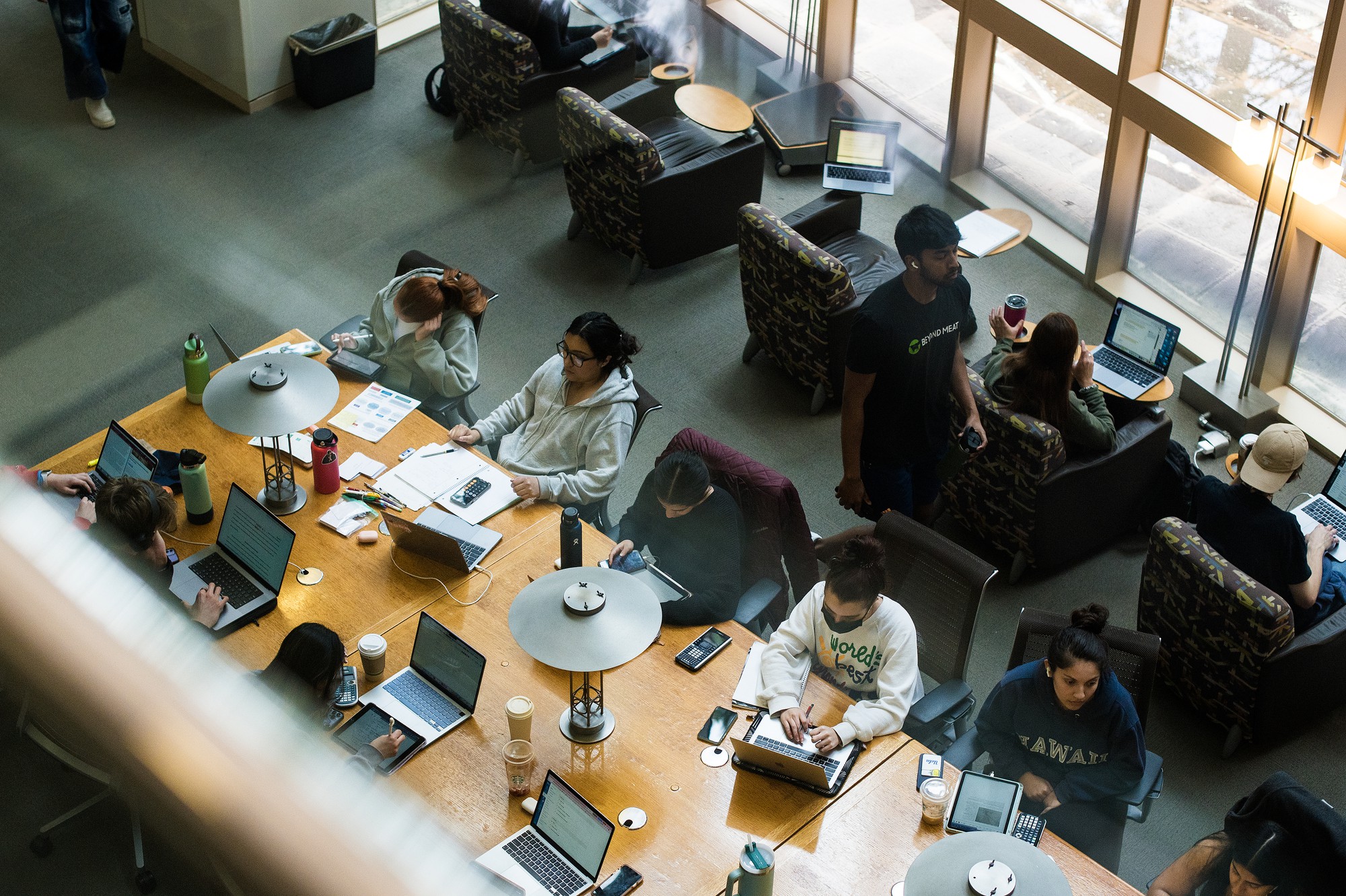Many students, at least once in their lives, have thought about the effectiveness of various study hacks in hopes to enhance their performance during exams. Amidst numerous learning approaches, whether it’s extensively taking notes, attending lectures or making various flashcards, students often ponder which methods lead to the highest level of academic achievement. Thankfully, numerous research studies have equipped us with helpful findings, so let’s delve into evidence-based insights to uncover the secrets of effective study habits.
In my interview with Karen Givvin, a distinguished professor of psychology and education at UCLA known for her expertise in teaching and learning, she emphasized the significance of helpful study habits for students.
When asked about her opinion on productive learning methods for exam preparation, she said “Preparing for exams by trying to teach someone else is a marvelous way to learn as it is a wonderful opportunity to explore your own misunderstanding of the material and find new connections in the information.” Striving to improve learning habits is important, however, altering one’s mindset about the learning process itself can be challenging and Givvin advised students to bear in mind the fact that “learning is inherently challenging, and mistakes are a natural part of the process. It’s essential to embrace the understanding that errors do not indicate that you are doing something wrong.”
One of universally recognized study methods is note-taking, however, is there a “correct” and “incorrect” way of taking notes?
According to various research studies, the manner in which students take notes has a vast effect on their learning ability, and when dedicating time to review the notes, handwritten note-taking has proven to yield superior outcomes compared to digital note-taking. Pam Mueller and Daniel Oppenheimer of Princeton University and the University of California, Los Angeles respectively, the reason why handwritten notes may lead to better outcomes is due to the fact that students often avoid verbatim transcription, while laptop users frequently rewrite the lecture word for word. The study mentions that the process of verbatim transcription without processing the information reduces all the benefits of external storage. This is why it may be helpful for students to consider summarizing the important concepts of the lecture in their own words and review those to improve knowledge. Writing more information gives the students an advantage to have more notes to study, however, when it comes to effective note-taking, quality matters more than quantity.
Another significant hinderance to learning are the various distractions present in the classroom. How frequently do you find yourself or those around you getting distracted by activities like browsing the internet, online shopping or gaming during lectures? It is commonly known that student learning is often compromised in large lecture halls where note-taking becomes an automatic, technical activity rather than an aid for active learning.
According to the Faria Sana of McMaster University, and Tina Weston and Nicholas Cepeda of York University, students spend 42% of class time on multitasking, which inevitably decreases their focus and impairs their learning. Many students believe that their own multitasking is the sole reason for their inattention, however, according to these researchers’ study, there is evidence that witnessing the multitasking of peers often leads to poor performance on tests and diminished concentration.
Often, despite studying the material extensively, many students find that they have forgotten some of it overtime, and this occurrence can be attributed to the concept “forgetting curve,” introduced by Hermann Ebbinghaus. According to Ebbinghaus, maintaining memory about a specific concept can be a challenging task and an effective way to enhance memory is through repetitive exposure to the study material at progressive longer intervals.
Retrieval, practice and active recall are also highly helpful study strategies that students could implement. Making flashcards, generating a test based on the material or trying to write down as much information as possible from memory without looking at notes, may be highly helpful for learning.
According to the Jeffrey Karpicke and Janell Blunt of Purdue University, implementing retrieval practices can lead to highest performance as these techniques allow students to recognize parts of the material that they have incomplete understanding on and identify the strengths of their knowledge.
Even after learning all the material, students are often faced with exam anxiety which manifests itself as intense fear when thinking about being tested, losing sleep and appetite, panicking when trying to find the correct answer and more. Students may feel alone in this experience, but, according to Angus McDonald of the National Foundation for Educational Research, findings have shown that test anxiety is highly common, with prevalence rate of 10-40% among college students.
A few things that can help with test anxiety are:
- Relaxation techniques like deep breathing, closing one’s eyes and imagining a good outcome or using progressive muscle relaxation techniques (tensing, then relaxing one’s muscles)
- Seeking a mental health support from professionals on and off campus
- Getting quality sleep
- Maintaining good levels of hydration and eating nutritious food
Being a student is one of the most enriching but often the most stressful times of people’s lives. Doing your best is always the number one predictor of success and hopefully, you can implement a few of these study techniques and find them helpful for your upcoming exams.
Good luck studying!
—
Featured Image Photographed by Julia Gu/BruinLife.

